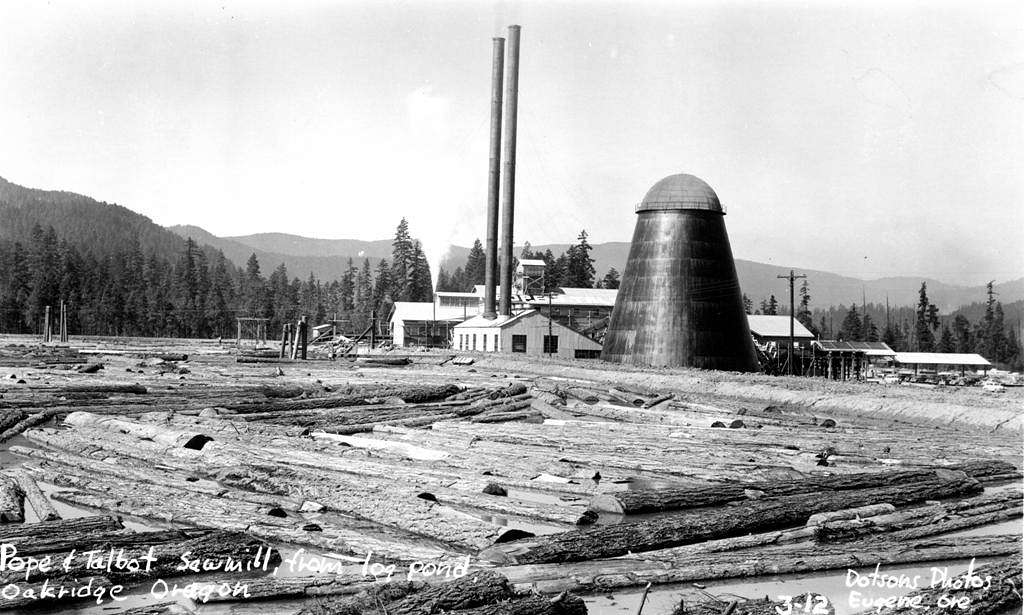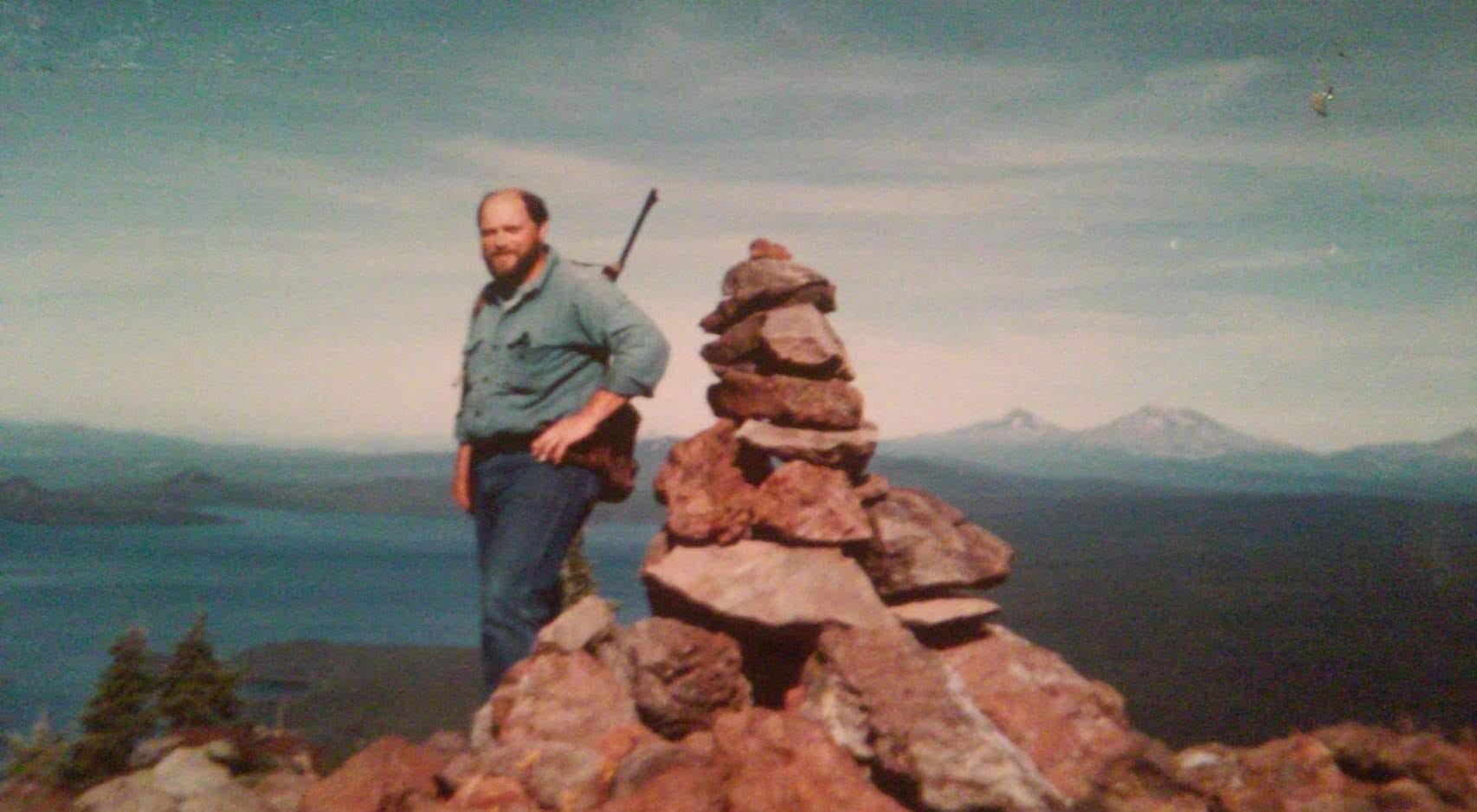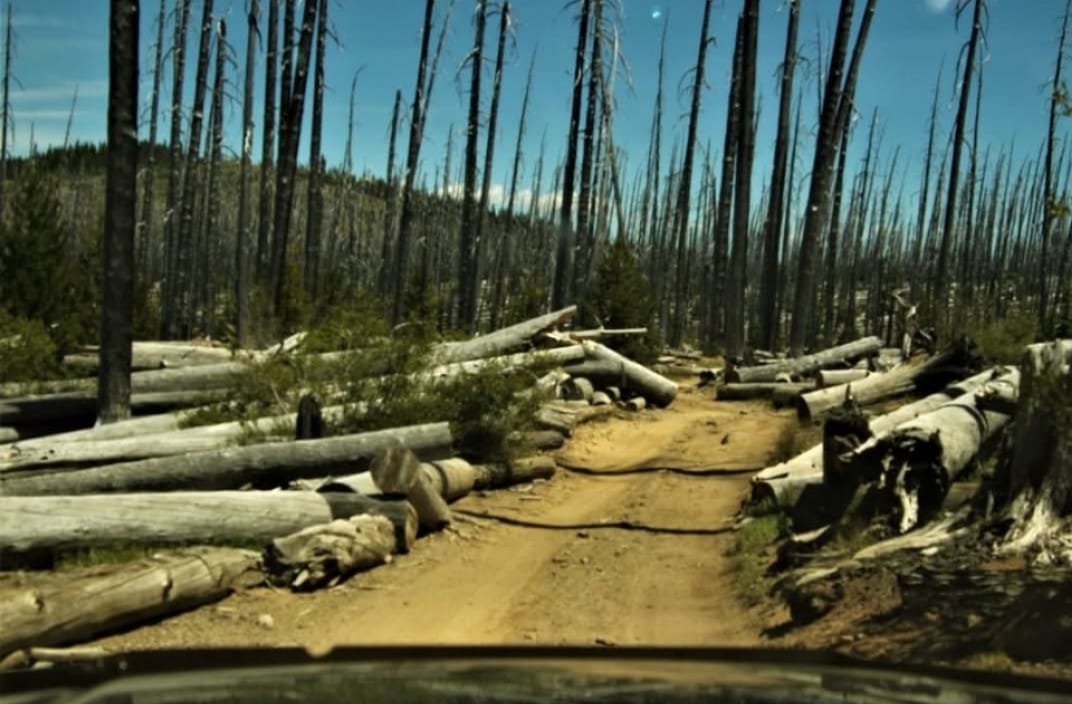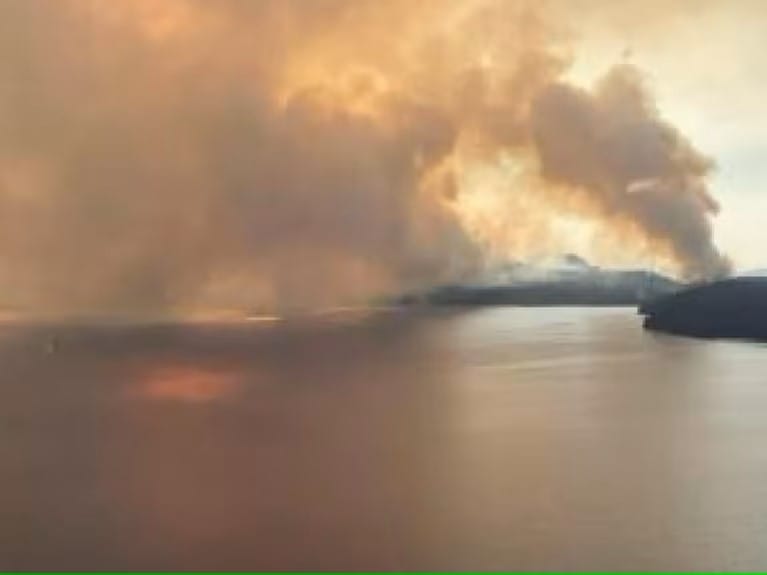The Schultz Interview: What We Are Hearing...
As of this morning — our February 3 interview with Forest Service Chief Tom Schultz has generated more than 600 responses

If you’re not a subscriber, please consider subscribing! We’re committed to public education and use our paywall sparingly - so we rely on your support to continue our work.
If you’re already a subscriber, thank you! Your support provides the consistent funding that allows us to keep delivering the quality content you expect from Evergreen.
Some say the world will end in fire
Some say in ice.
From what I’ve tasted of desire
I hold with those who favor fire.
But if it had to perish twice,
I think I know enough of hate.
To say that for destruction ice
Is also great.
And would suffice.
Robert Frost, Harper’s Magazine, December 1920
Editor’s Note: This is one of the most unforgettable interviews I’ve ever done – and I’ve done hundreds of them over the last 60 years. Rob DeHarpport and I have never met, but we’ve been kindred spirits for more than 20 years. Still, his answers to the questions I emailed to him three weeks ago had me asking where he’d been all my life. We could have been brothers.
The West’s wildfire pandemic and its spiritual destruction of hundreds of rural communities drew us together around our shared belief that what we have witnessed since the Spotted Owl Wars began in the 1980s has been morally and ethically repugnant – a deliberate and well-planned attack by non-governmental organizations bought and paid for by people who see the rural West as their private playground.
It is 568 miles from Rob’s boyhood home in Oakridge, Oregon, to mine in Kellogg, Idaho. Oakridge was once booming sawmill town and Kellogg was once the center of the largest mining and smelting complex on Earth. Both were company towns in the best sense or the word.
Rob and I both understand the forces that tore our towns economies to bits, but we wish more Americans appreciated the enormous contributions these communities and hundreds more made to the nation’s growth following World War II.
Those who toiled in mines, forests and sawmills have been publicly vilified by the anti-forestry mob for more than 40 years. Enough.
Evergreen: Rob, tell us a bit about yourself: where you grew up and went to school and your family.
DeHarpport: I was born in Eugene, Oregon in Feb. 1959, 9 months after my folks were married. Our family grew with my brother Tony and sister Lisa. They were three and five years younger than me. Our parents were Dennis “Dink” and Judy DeHarpport. We were raised in Oakridge, Oregon, next door to the Pope & Talbot sawmill. Around the time I was born, my parents purchased a small store and home from Larry and Emma Hendrickson. It was Hendrickson's Corner Store before my folks renamed it Dink's Market.

Evergreen: From our many conversations, I know that you know a great deal about the timber industry. Are logging and sawmilling in your family’s heritage?
DeHarpport: One of my grandfathers was a Forest Service packer for many years and I worked on the Pope & Talbot brush crew between my junior and senior year in high school digging fire lines around recently harvested clear cuts in the upper Middle Fork of the Willamette River area, but that’s about it.
Evergreen: Good money?
DeHarpport: I made more than twice the minimum wage – about $4.50 an hour. After graduating in 1977, I worked on the Oakridge Ranger District’s 10-man fire crew stationed at the old Flat Creek Work Center.
My grandparents, Mom and family lived at Flat Creek when they first moved from Hanksville, Utah to Disston, near Cottage Grove and then Oakridge and Flat Creek around 1949.
My maternal grandfather joined one of his brothers who was working for the Forest Service at the long gone Rujada FS Ranger Station. He and his Dad and a couple of brothers worked for the Civilian Conservation Corps at Darrington, Washington during the Great Depression.
Evergreen: My dad did the same thing. Like many others, he lied about his age and got hired in the summer of 1933 at CCC camp on the North Fork of Idaho's Coeur d’ Alene River. Mostly, Dad fought fires and worked on blister rust crews.
DeHarpport: Grandpa was a packer, loading mule teams with lumber to build fire lookouts near Darrington. He did that until the Forest Service got rid of its Flat Creek horses and mules in the early sixties. I remember visiting Grandpa at Flat Creek as a kid and feeding the horses.
He retired from the Forest Service in 1969. My grandmother Robison worked as a switchboard operator for the local telephone company for many years, maybe early 60s. She retired a few years after Grandpa.
Evergreen: Those were the days, Rob. Switchboard operators, push button phones, rotary phones and, before that, wall-mounted phones you had to crank that were connected to party lines. Anyone on the party line could listen to what you were saying.
DeHarpport: And now we have cell phones with great cameras in them that we carry in our back pockets.
Evergreen: It is amazing. What about your dad and his family?
DeHarpport: Dad and his family moved to Westfir in the early 50s. Grandpa DeHarpport worked for Edward Hines Lumber Company on the mill pond for maybe a year or two? Grandma’s sister, Irene Shorey, worked as a cook in the Hines cook house and her husband, Marion, worked for the Gillespie’s at the Westfir Store. Dad got his start in the grocery business at that store. Westfir was very much a company town in a good way, so Hines employees got “script coins” they could use to buy groceries. I have one of those old coins.
Evergreen: So you grew up in Oakridge/Westfir area but somehow avoided a career in the woods or a sawmill.
DeHarpport: Yes and no. Probably 90 percent of the members of the fire crew I worked on were forestry students at Lane Community College in Eugene, so that’s what I planned to do too, but the enrollment was already full so I enrolled in the business management program.
After two terms I decided it wasn’t for me, so I got a job as a utility man at Westfir Plywood that had purchased the plywood portion of the Hines Lumber Company Mill that closed in 1977. After Westfir Plywood filed for bankruptcy I worked on another brush crew and briefly roofed houses in the area.
Evergreen: If I’ve learned nothing else in my work life, I’ve learned that life includes lots of unanticipated twists and turns. It’s that famous Yogi Berra line: when you come to a fork in the road, take it!
DeHarpport: That how it was for me until I got hired as a delivery driver for Coca-Cola Bottling of Eugene. I worked there for about three years, then went into the beer business as a driver and salesman for Coast Distributors. It later became Mt. Hood Beverage and I worked there for 20 years before I went to work for Sysco Foods as a Eugene based driver. I left there about eight years after an on-the-job injury led to my having my right ankle surgically fused. After that I hauled sand gravel until I was 55, then started drawing my Teamsters pension.
Evergreen: As Yogi said, “Déjà vu all over again.”
DeHarpport: Pretty much! During my years working in the Eugene area I was married and divorced and had a son, Jacob, in February 1996. He was born two days after cancer took my mom in Seattle.
Kris and I were living on Gate Creek in Vida up the McKenzie River Valley when Jacob son was born. I said goodbye to my mom and flew home just in time for his birth. We moved from Gate Creek to Westfir in 2000. Our Gate Creek home was burned to the ground in 2020 during the 173,000-acre Holiday Farm Fire.

After a couple of years of living back in the Oakridge/Westfir area, I was elected to the Westfir City Council and served there for several years. I was elected as Mayor in 2012 and 2014 and also served two terms on the Oakridge School Board and on a few other boards and a non-profit that fought against banning motor boats on Waldo Lake.
Evergreen: For a guy who wasn’t sure what to do with his life, you’ve stayed very busy! And I’ve read enough of your stuff over the years to have concluded that you are quite the storyteller and a history buff with a penchant for detail.
DeHarpport: Thank you Jim. I love history and I enjoy writing, especially on topics I’m passionate about. I was fortunate to have great teachers in my growing up years in Oakridge. We were encouraged to dig into current events and history.
Evergreen: Being mayor of Westfir seems apropos given your interests but why did you run and was it enjoyable?
DeHarpport: In both cases, I saw things that I didn’t like as do many before serving on an elected council or board. I was first involved as a City Council member, then Mayor and a School Board member.
I enjoyed all of it, but there were some tough decisions we have to make while I was on the school board that impacted lifelong friendships. Most of them due to declining enrollment. During the Timber Wars we went from 1,200 students to between 400 and 500. It’s a story that repeats itself in hundreds of rural timber communities.
Evergreen: Countless lives were torn apart. I think it’s the main reason people living in the rural West are so angry. Their towns have never recovered from the losses they’ve suffered. Where is their environmental justice?
DeHarpport: Agreed. In 2014 there were 57 fewer businesses in Oakridge/ Westfir than were there in 1977. It's hard to quantify the losses be it extends far beyond money. People's emotions cause them to do things they otherwise would not do.
During my first term as on the Westfir City Council, I began to suspect something was wrong with our town’s finances. After I was elected Mayor I hired a forensic account from Vancouver, Washington. After a thorough investigation, our city recorder was tried and convicted of embezzlment and sent to prison.
It wasn’t fun for any of us but it did speed my decision to move to Crescent Lake, slow down and enjoy life.
Evergreen: There are times when I feel the same way. It's discouraging.
DeHarpport: Looking back on everything I was simultaneously doing I think I must have lost my mind! Now I live quietly about 35 miles southeast of Oakridge just off Highway 58 and close to my favorite fishing lakes. My parents store was around Milepost 36, and now I’m between Milepost 71 and 72, so I haven’t strayed too far from my roots.
I grew up living next to my parents store close to Milepost 36, I now live between Mileposts 71 and 72. It’s a place that I’ve loved since I was a kid. My parents were active in the Jaycees and the Oakridge/Westfir Chapter had an annual family campout at Crescent Lake during the 1960s and 70s.
Somewhere in those years I decided that this is where I wanted to live when I retired. I bought bare land, had some plans drawn and lived in my camp trailer for about five months while I was pounding nails. I rented a small place for my first winter. Good thing too. We have 70 inches of snow.
Evergreen: We’ve never met personally, but we’ve talked back and forth on email for years and you bought several copies of our wildfire book, First, Put Out the Fire! We seem like kindred spirits. Would you agree?
DeHarpport: One hundred percent. We both witnessed the senseless destruction of our timber industry and timber communities and are very vocal and opinionated about what has happened over the last 30 to 40 years. I knew it hurt Oakridge and Westfir but I did not fully comprehended the damage until I moved back in 2000.

Evergreen: We also share an interest in what’s left of Alaska’s timber industry, especially the Viking Lumber Company on Prince of Wales Island, which is owned by the Dahlstrom family. I met the brothers in Hoquiam, Washington years ago. Do you know them?
DeHarpport: No I’ve never met them. However, my friend, Jim Tipton moved to Alaska after logging began to shut down in Oregon. He lives on Prince of Wales Island where he managed a floating logging camp on barges for Phoenix Logging Company until it shut down. But he’s still on the island logging for a smaller outfit that supplies logs to Viking Lumber.
Jim and my brother worked together in early 80s. My brother was killed in a logging accident near Mapleton in 1986. He was recently married with a daughter on the way. A tail hold strap failed and the mainline hit him.
Evergreen: In a recent email note, you said you had met Curly, from the Port Protection television series on a ferry boat. He’s a fascinating and resourceful man. What was it like meeting him?
DeHarpport: Nice guy, just like the Curly we see on Port Protection. I’ve also met other folks on Prince of Wales from around here including the owner of the Riggin’ Shack Café and Store in Craig. They’re from Fall Creek, Oregon. Been there since the Valentine family started logging on the island. Lots of loggers moved to Alaska after shutdowns began in Oregon.
Evergreen: The men and women who live at Port Protection really look out for one another. What do you think drives them?
DeHarpport: Probably the same things that took me back to Alaska several times of the last few years. Fishing and enjoying life surrounded by the woods and water. Also a stubborn independent streak and a desire to experience the solitude that living remotely provides.
Evergreen: My Alaska experiences began when Louisiana Pacific hired us in 1995 to research and publish a special edition of Evergreen Magazine focused on Ketchikan Pulp Company. I met some wonderful people including Don and Helen Finney. Helen wrote an essay for the project in which she described what it was like raising kids on Prince of Wales while Don set up a logging camp on the island. Did you ever meet the Finney’s in your Alaska travels?
DeHarpport: Never met them. I’ll have to find her essay and read it. I know a woman who taught up there wrote a book about teaching in logging camps. Could it be the same woman?
Evergreen: Possibly. Helen and Don have both passed on. Little remains of Alaska’s once vibrant timber industry but Viking Lumber hangs on and is the world’s only manufacturer of spruce wood used to manufacture grand pianos and violins. Am I correct?
DeHarpport: I believe so.
Evergreen: Do you think the Trump Administration will be able to breathe new life into the U.S. Forest Service and, by inference, the West’s forests and its forest products companies?
DeHarpport: I hope so. Continuing these policies borders on insane. We need lumber as a society for building and more. Why import it from other countries when we have enough here that we manage and regulate more wisely than Third World countries do.
Evergreen: We remain very concerned about the West’s wildfire pandemic. You’ve written about it as its relates to the Deschutes National Forest around Crescent Lake. How bad is it and has the Forest Service done anything to reduce wildfire risks?

DeHarpport: It’s very dangerous around here. We were on an evacuation notice level last summer for three months due to the nearby Red Fire that was allowed to burn until it snowed in the fall.
Our forests are too dense and unmanaged with lots of dead or dying lodgepole pine. We have thousands of acres of it. Thinning would help. I believe we should be logging more and replacing lodgepole with ponderosa in many areas. Slower growing but more valuable and not as prone to wildfire.
I wrote a long editorial back in 2014 that the Eugene Register Guard published. I titled it “We Should Judge Timber Policy By Results Rather Than Intentions.” I was surprised when they published it and even added photographs.
Yesterday, I posted on Facebook about my former wife and son narrowly escaping the Davis Lake Fire in 2003. Davis Lake is only an eight mile drive from my home. It still sickens and haunts me to see the destruction from that fire and the wasted ponderosa left to rot in that fires wake.
The Cedar Creek fire of 2022 pisses me off as much or more. It burned up our old deer and elk hunting camp and much of the area where we used to hunt and fish.
I was at Davis Lake fishing the day the Cedar Creek Fire blew up. It made me cry to see what was happening in one of my favorite places. I was standing above Davis Lake looking west through the Davis Lake scars and over at Maiden Peak watching the smoke column grow from the Cedar Creek Fire grow higher and higher

Whoever was in charge of stopping both the Red and Cedar Creek fires should have been arrested and charged with the wanton waste and destruction of public property and endangering lives.
The Forest Service allowed Cedar Creek Fire to skunk around for more than a month. Fire crews busied themselves building shaded fuel breaks while the fire entered the Waldo Lake Wilderness. Then they implemented the MIST strategy. MIST stands for Minimum Impact Suppression Strategy. About five weeks into this nonsense we had strong east winds and BOOM! THERE SHE GOES! Insanity prevailed. What crock of crap!
Never in my life could I or anyone I know from Oakridge or Westfir ever imagine a fire being allowed to smolder for over a month and then explode into a 127,000 acre monster.
Evergreen: You've certainly combined your compassion and knowledge in a way not many people do – especially the knowledge part.
DeHarpport: I’ve seen too much forestland that I loved destroyed by wildfires that could have been quickly and easily extinguished. Oakridge still has an annual Tree Planting Festival that was started in 1953 by townspeople who realized that their future depended on regenerating trees that we were logging.
Senator Wayne Morse planted trees in a recently harvested unit above Wall Creek that year. My Grandpa Robison took me on my first deer hunt near that site years ago. He told me we were near Unit 6, meaning the sixth unit cut in the Salmon Creek Drainage above Oakridge, just a few miles up the road from the Flat Creek Ranger Station he worked for years and where I worked on the fire crew in 1977.
Sadly, it’s all burned to a crisp from the Cedar Creek Fire. Oakridge hasn’t actually planted trees in the forest for many years but they plant a few in town or near the old Pope & Talbot mill site.
Ironic isn’t it? We're still surrounded by timber and 127,000 acres of blackened forest and we are still celebrating the Tree Planting Festival. When I was growing up in Oakridge, there were huge signs on both ends of town proudly proclaiming that the town was the Tree Planting Capital of the World. Now the entire West is burning up. Northern California, Arizona, New Mexico, Idaho, Montana, Wyoming, everywhere.
I’d much rather see a clear cut or a thinning that more black snags. At least we know that a logged area will be replanted and green again. The choice is ours. It’s just like Smokey Bear says, “Only You Can Prevent Forest Fires.”
You 100% tax-deductible subscription allows us to continue providing science-based forestry information with the goal of ensuring healthy forests forever.